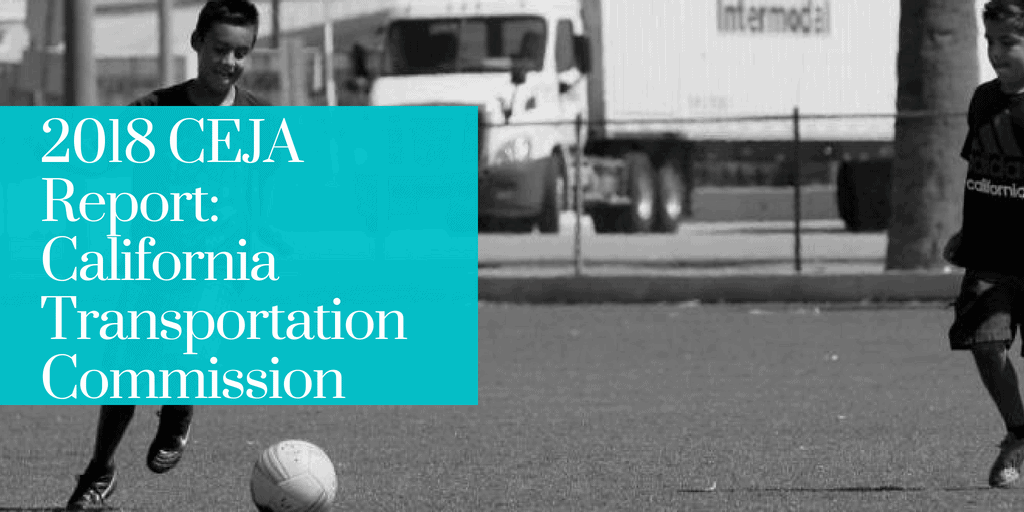New Environmental Justice Report Finds California Transportation Commission Far Behind Equity Goals
Last week the California Environmental Justice Alliance (CEJA) held a briefing to discuss their second annual Environmental Justice Agency Assessment. The report lays out principles for the inclusion of environmental justice in policy and program implementation for state agencies, including the California Transportation Commission (CTC), an agency CalBike watches closely and which is extremely important this year given the agency’s increased role in making transportation investments from last year’s landmark transportation funding package Senate Bill 1, the Road Repair and Accountability Act of 2017.
CEJA’s assessment shows disappointing progress by the CTC in making transportation investments more equitably. Specifically, it shows that its investments sustain the inequalities burdening low-income communities of color across the state who face massive and interconnected systems of polluting highways, dangerous roadways, growing port complexes, threatening rail distribution centers, and sprawling warehouse districts. Vulnerable Californians located in close proximity to transportation infrastructure like this are exposed to dangerously high levels of nitrogen oxide, particulate matter, and ozone. Predictably, they suffer more disease and shorter life expectancy as a result.
The particularly insidious problem is that once we build transportation infrastructure it impacts generations to come as all subsequent development patterns have to connect with them. The CTC has not historically critically assessed the impact of its funding on California’s disadvantaged communities, and its rush to spend the new gas tax money in advance of the proposed gas tax repeal on the ballot this November has not allowed for a critical evaluation of how that money maintains inequities.
The rush in spending money is intended to show the voters that they are getting value for their gas tax money. “Brought to you by SB 1” signs are apparent all over California. But for low-income communities burdened by transportation investments, expedited, uncritical spending is not helpful. These communities and the organizations representing them, led in part by CalBike, did not support SB 1 in the first place due to its failure to protect disadvantaged communities.
Considering that the gas tax is considered a regressive tax by low-income Californians, the CTC has a challenge in convincing the populations burdened by SB 1 infrastructure projects to vote to keep the tax. The new report by CEJA shows they have a long way to go.
An important first step for the CTC is the corridor studies they have just begun. Freight corridors can be transformed with investments to protect adjacent neighborhoods such as the electrification of all truck traffic in special lanes, the construction of better active transportation infrastructure, and better enforcement of existing pollution controls. If the CTC expects voters to support the gas tax in November, they would be wise to show early results from these corridor studies.
As a state, we must actively make space for and include environmental justice communities in all of our policy decisions. Especially when we decide to increase taxes and new funds, there must be space for our most vulnerable residents to be considered important stakeholders as well as opportunities for actual meaningful partnership. Anything else would be a failure to deliver on the promise of a California that is safe and healthy for everyone.





